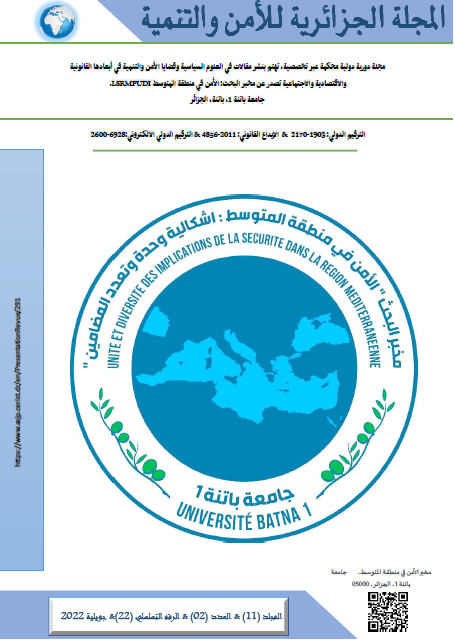الأمن الإقليمي: إطار نظري
DOI:
https://doi.org/10.59791/arsd.v11i2.3153الكلمات المفتاحية:
الإقليم، الأمن الإقليمي، مستوى التحليل، الجماعة الأمنية، مركب الأمن الإقليميالملخص
يفحص هذا المقال جهدا نظريا مستمرا يتعامل مع الأقاليم بوصفها مستوى تحليليا متميزا ومستقلا يقع بين مستويي الدولة والنظام الدولي، ظهر لسد الهوة الواسعة بين المستويين التقليديين، سِيما مع بروز موجة من التهديدات الأمنية التي تُنْعَتُ بالجديدة، وأنها عابرة للأوطان، وتميل لِأَنْ تكون إقليمية أكثر منها وطنية أو عالمية. يتعامل المقال مع التطور التنظيري للمستوى الإقليمي في التحليل الأمني، من خلال مناقشة الجوانب الإشكالية في تعريف الأقاليم والأقاليم الأمنية، ثم عرض المبررات التي تمت صياغتها لاعتماد المستوى الإقليمي في التحليل الأمني، وأخيرا مناقشة مقاربتين نظريتين أسهمتا، إلى جانب مقاربات أخرى، في بناء تحليل أمني قائم على أسس إقليمية، هما: الجماعة الأمنية الإقليمية، بمفهوميها الدوتشي والبنائي؛ ونظرية مركّب الأمن الإقليمي. This article examines a largely sustained theoretical effort that treats regions as distinct and autonomous analytical levels, between the state and the system, He appeared to bridge the wide gap between the two traditional levels, especially with the emergence of a wave of new and transnational security threats, which is regional, not national or global. The article deals with the theoretical evolution of the regional level in security analysis by discussing the problematic aspects of defining regions, security regions ; presenting the justification formulated for the adoption of the regional level in security analysis, and, finally, discussing two theoretical approaches that, along with other approaches, contributed to building a regional security analysis: the security community, with the Deutschian and constructional concepts; and the regional security complex theory.

